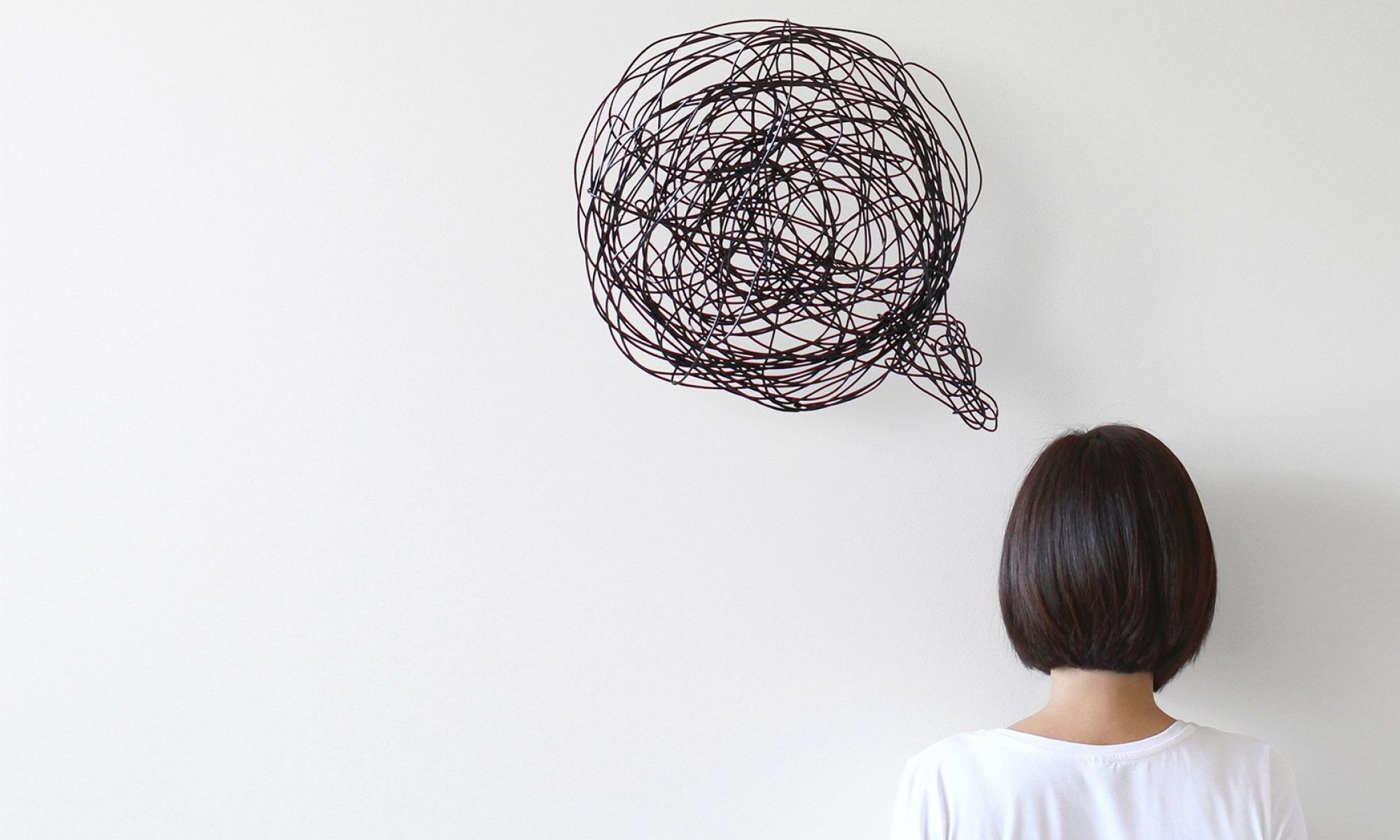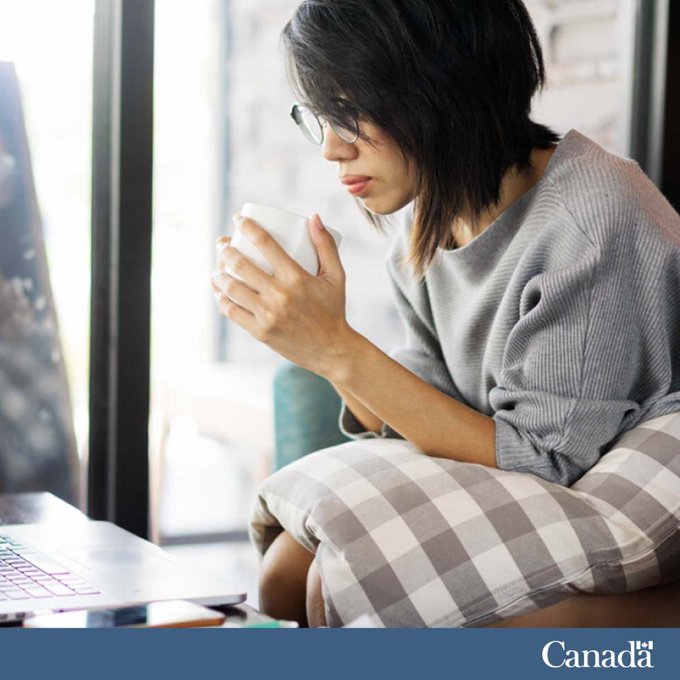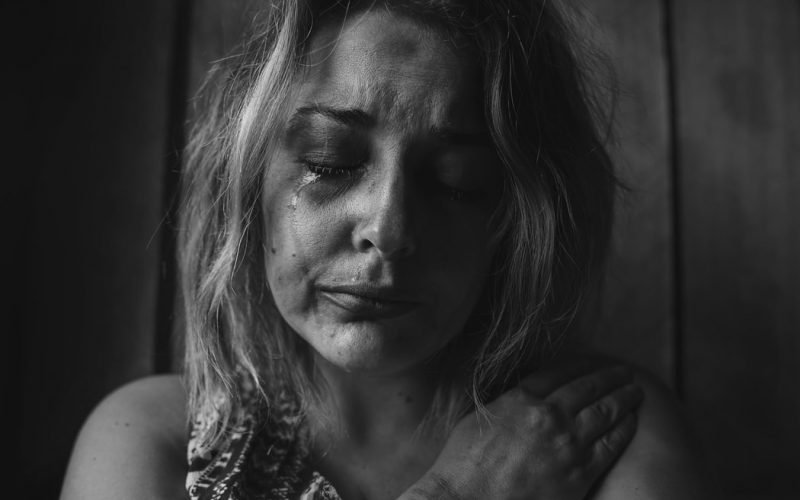10 Sneaky Ways Your Coronavirus Anxiety Is Coming Out
COVID-19 is messing with everyone’s mental health. Here are subtle signs it’s affecting yours, plus advice on how to cope.
From Huffington Post by Dominique Astorino
For Zoom video, go to Huffington Post here!
Anxiety is pretty damn sneaky.
In reality, they really do struggle with the mental health problem, he said. Anxiety can be hard to pinpoint or identify because presents in many different ways that may seem unrelated.
This is especially true right now when it comes to the anxiety many of us are feeling due to the coronavirus pandemic. Our lives have been altered in unimaginable and numerous ways, which can trigger the stress hormone cortisol and lead to emotional and physical symptoms.
“Good old fashioned ‘run of the mill’ anxiety is often manifested in ways people don’t associate with anxiety,” said Forrest Talley, a psychologist based in Folsom, California.
Curious how you can spot when that anxiety is coming out? Below, the experts break down the subtle signs to watch for:
1. You’re feeling more tired than usual, even if you don’t do much during the day
If you haven’t had the same gusto each day that you usually do, you’re not alone. Gilliland noted that energy loss is “the most common and confusing side effect of this pandemic, especially for people that are typically active or frequent exercisers.”
“Even if you’re not a ‘morning person,’ you’re definitely not a night person right now,” Gilliland said. “All this stress and worry starts to drain our battery in a hurry and by mid-afternoon, most people are on a slippery slope to the couch or bed.”
2. You aren’t sleeping well
Perhaps you’re tired all the time and you want to sleep, but no dice. Or maybe you do fall asleep, but the quality isn’t great. Blame it on your anxiety. “Insomnia frequently occurs in anxious people,” Talley said.
Rachel Wright, a therapist in New York City, said excess cortisol levels have a negative impact on the quality of rest and ability to fall asleep. To rectify, do what you can to create a nighttime ritual, stick to a consistent bedtime, avoid screens for an hour or so before bed, and limit caffeine intake in the afternoon so you can support your sleep cycle the best you can.
3. You startle easily
We all get startled from time to time, but if you’re more jumpy than usual it’s time to take notice. Your body and brain could be on high alert because of anxiety.
If your anxiety is presenting in tension and hypervigilance, “it doesn’t take much of the unexpected to have us come unwound,” Gilliland said. In other words, the mildest of triggers ― think a falling cup or a closing door ― might set off a larger than usual response.
4. You’re channeling lots of energy into hobbies or activities
Are you baking banana bread like we’re on the precipice of a banana famine? Taking 16 free online courses, and learning two new languages? Fostering a dog, growing tomatoes and strawberries, and sanitizing your house from top to bottom?
Excessive enthusiasm or extreme productivity might be your coping mechanism, or how your anxiety is presenting.
“Some may find that they now tend to focus their mental energies on organizing their schedules, or the house or shopping routines,” Talley said. “The ability to gain control through organizing provides a counterbalance to the sense of having little control over that which makes them anxious.”
This also includes enthusiasm in how you schedule your time, whether it be on Zoom with or in your daily routine. For example, “some people will find themselves inclined to exercise more ― a really healthy way to modulate anxiety ― but simply chalk up their newfound workout intensity to having more time,” Talley said. “Perhaps, but it may also be how they respond to anxiety.”
Make sure you’re taking time to rest and confront anything you may be feeling.
5. You don’t have much interest in anything
On the flip side, “COVID anxiety can appear as apathy,” said Habib Sadeghi, an integrative health expert and author of “The Clarity Cleanse.”
This is because routines that have given us structure and a sense of purpose are now disrupted or gone entirely. “When we can’t follow our routine or do the things that are important to us, like work, go to school, or work out, life can feel meaningless,” Sadeghi said.
The antidote? “It’s important to use this time to create new routines for ourselves and find new interests,” he said. (Just be careful not to fall into the trap mentioned above. There is a balance.)
A loss of interest in some of your favorite activities (which in severe cases is referred to as anhedonia, a symptom of depression) is not out of the ordinary right now ― but it may also be an indicator that you need some professional support.
6. Intense loneliness
“With all bars, restaurants, and other public gathering places closed, COVID anxiety can also manifest as loneliness,” Sadeghi said.
A remedy to this is not necessarily the most ideal option, but it can work: virtual connection. “Be sure you’re reaching out to family and friends over the phone and on live chat video platforms like Zoom,” he said. “Seeing and/or hearing the other person provides a connection that’s more personal and nurturing.”
Talley also attributed this symptom to people withdrawing from their support system due to anxiety. This can have a negative impact on your relationships, which then fuels the cycle further.
7. You’re experiencing reactivation or agitation of other mental health conditions
Coronavirus-related anxiety might compromise progress that you made on other mental health conditions. Sadeghi advised to watch for the reactivation of post-traumatic stress disorder, obsessive-compulsive disorder and depression in particular.
Even if you don’t have a diagnosed mood disorder or mental illness, those cortisol levels can contribute to mood swings or “feeling like you’re on a mood roller coaster,” Wright said.
“A sense of despair, or possible mild depressive symptoms, may crop up,” Talley added. “Most people will not realize that the origins of this sadness have their roots in anxiety.”
It’s super-important to keep tabs on your emotions and ensure you have the right resources to support your mental health. Reach out to your therapist if you have one, and if you don’t try chatting with a professional via teletherapy or another support route. Also, stay on top of any medications you need, journal and take time for yourself. Do whatever you need to do to prioritize your mind.
8. You’re getting more headaches or other physical issues
Talley noted that you may see some physical symptoms that may appear to be all over the map. Think headaches, dizziness, heart palpitations, ulcers, insomnia, rashes, hand tremors, general restlessness and gastrointestinal issues. Keep an eye out for these, and use them as a “check engine light” of sorts. They could be a sign you’re experiencing major anxiety.
9. You get angry or have more frequent outbursts
“For people who feel that some important aspect of life is in danger ― like their health or the health of loved ones ― and that they have little control over the outcome, it is not unusual for them to become angry,” Talley said. “The more one is used to feeling in control, the more likely one is to feel anger.”
This anger may be directed at yourself or at others. You might be overly self-critical about everything you do at work or pick apart your appearance, for example. Or you may find yourself snapping at your partner or getting frustrated with your parents more than usual.
“It is not uncommon for anxiety to cause people to become irritable,” Talley said. “Many who are anxious and irritable during this pandemic will attribute the irritability to the restrictions that have been imposed. In truth, their irritability is also due to their anxiety.”
10. You keep forgetting things
Having trouble staying on top of your to-dos? Forget something you were in the middle of? This is a cognitive symptom of anxiety, Talley said. Your brain is overloaded with stress and may struggle to manage tasks and mental checklists that seemed routine before.
“Some may find themselves more absent-minded and forgetful,” he said. “Their brain is overloaded with anxiety that distracts them, and depletes their ability to concentrate.”
If you’re dealing with any of these issues, reach out for professional support. Leaning on your loved ones is great, but there’s nothing wrong with seeking guided help. You don’t need to be at rock bottom to benefit from therapy.
Other than that, make sure you’re keeping up a healthy routine. That includes getting lots of rest, drinking plenty of water, eating well and regularly, moving your body in any way that feels good, and more. As we said, anxiety is pretty damn sneaky ― but you can tame it.
Therapists Explain How to Avoid Morning Anxiety
Anxiety in the morning can impact your entire day. When you feel like life is overwhelming as you look at your to-do list for the day, and your family is hanging on you with random needs, you can suddenly feel as if you’re sinking. If the morning rush is getting you down, we have a few ways you can combat the feeling of panic.
WHAT IS MORNING ANXIETY?
The term “morning anxiety” is not a medical term. It’s just part of the normal anxious feelings many people feel. The issue is that some people feel overwhelm that hits them like a wave in the morning. They stress about all that is going to happen during the day. They worry that only bad things will happen.
What if they cannot get everything done? What if they’re late to work? Or what if the sky falls?
Then this worry turns into more stress that leads you to think you just can’t even appropriately face the day. The good news is that you’re not alone. Sometimes your hormone levels are off. Sometimes you’re just simply stressed. At other times the way you sleep (or don’t sleep) can lead to higher anxiety levels. Fortunately, there are many things you can do to help ease these stressful feelings.
13 WAYS TO COPE WITH MORNING ANXIETY
Mental health professionals suggest you try some of these natural methods to cope with morning anxiety.
Stress and Coping during Covid-19
Outbreaks can be stressful
The outbreak of coronavirus disease 2019 (COVID-19) may be stressful for people. Fear and anxiety about a disease can be overwhelming and cause strong emotions in adults and children. Coping with stress will make you, the people you care about, and your community stronger.
Stress during an infectious disease outbreak can include
- Fear and worry about your own health and the health of your loved ones
- Changes in sleep or eating patterns
- Difficulty sleeping or concentrating
- Worsening of chronic health problems
- Worsening of mental health conditions
- Increased use of alcohol, tobacco, or other drugs
Everyone reacts differently to stressful situations
How you respond to the outbreak can depend on your background, the things that make you different from other people, and the community you live in.
People who may respond more strongly to the stress of a crisis include
- Older people and people with chronic diseases who are at higher risk for severe illness from COVID-19
- Children and teens
- People who are helping with the response to COVID-19, like doctors, other health care providers, and first responders
- People who have mental health conditions including problems with substance use
Take care of yourself and your community
Taking care of yourself, your friends, and your family can help you cope with stress. Helping others cope with their stress can also make your community stronger.
Ways to cope with stress
- Take breaks from watching, reading, or listening to news stories, including social media. Hearing about the pandemic repeatedly can be upsetting.
- Take care of your body.
- Take deep breaths, stretch, or meditateexternal icon.
- Try to eat healthy, well-balanced meals.
- Exercise regularly, get plenty of sleep.
- Avoid alcohol and drugsexternal icon.
- Make time to unwind. Try to do some other activities you enjoy.
- Connect with others. Talk with people you trust about your concerns and how you are feeling.
10 Simple Tricks to Be Happier
Our happiness depends on us. We’re the only people who can be responsible for our happiness; don’t look for it in other people! Being happy is inside of us, but it will only poke it’s head out if we let it.
Happiness is inward, and not outward; and so, it does not depend on what we have, but on what we are.
– Henry Van Dyke
If we begin to train ourselves through little tricks each day, we can reach a higher grade of happiness. Do you dare to start?
Here are 10 simple tricks to being happy:
1. Don’t lock yourself up
Share laughs, discussions and experiences with people who truly appreciate you and bring positivity to your life. A good joke or a hug can be a great remedy to any sickness, don’t you think?
Sharing with others in a healthy manner will help you to feel better.
Trouble coping? The Wellness Together Canada portal is here with mental health and substance use support.
Covid-19 is stressful. Canada is there to support you.
Three magic words, by David Lion.
That Discomfort You’re Feeling Is Grief
By Scott Berinato for The Harvard Business Review
Some of the HBR edit staff met virtually the other day — a screen full of faces in a scene becoming more common everywhere. We talked about the content we’re commissioning in this harrowing time of a pandemic and how we can help people. But we also talked about how we were feeling. One colleague mentioned that what she felt was grief. Heads nodded in all the panes.
If we can name it, perhaps we can manage it. We turned to David Kessler for ideas on how to do that. Kessler is the world’s foremost expert on grief. He co-wrote with Elisabeth Kübler-Ross On Grief and Grieving: Finding the Meaning of Grief through the Five Stages of Loss. His new book adds another stage to the process, Finding Meaning: The Sixth Stage of Grief. Kessler also has worked for a decade in a three-hospital system in Los Angeles. He served on their biohazards team. His volunteer work includes being an LAPD Specialist Reserve for traumatic events as well as having served on the Red Cross’s disaster services team. He is the founder of www.grief.com, which has over 5 million visits yearly from 167 countries.
Kessler shared his thoughts on why it’s important to acknowledge the grief you may be feeling, how to manage it, and how he believes we will find meaning in it. The conversation is lightly edited for clarity.
HBR: People are feeling any number of things right now. Is it right to call some of what they’re feeling grief?
Kessler: Yes, and we’re feeling a number of different griefs. We feel the world has changed, and it has. We know this is temporary, but it doesn’t feel that way, and we realize things will be different. Just as going to the airport is forever different from how it was before 9/11, things will change and this is the point at which they changed. The loss of normalcy; the fear of economic toll; the loss of connection. This is hitting us and we’re grieving. Collectively. We are not used to this kind of collective grief in the air.
You said we’re feeling more than one kind of grief?
Yes, we’re also feeling anticipatory grief. Anticipatory grief is that feeling we get about what the future holds when we’re uncertain. Usually it centers on death. We feel it when someone gets a dire diagnosis or when we have the normal thought that we’ll lose a parent someday. Anticipatory grief is also more broadly imagined futures. There is a storm coming. There’s something bad out there. With a virus, this kind of grief is so confusing for people. Our primitive mind knows something bad is happening, but you can’t see it. This breaks our sense of safety. We’re feeling that loss of safety. I don’t think we’ve collectively lost our sense of general safety like this. Individually or as smaller groups, people have felt this. But all together, this is new. We are grieving on a micro and a macro level.
Yoga and its connection to mental health | Nikolai Blinow
It’s OK to Feel Sorry for Yourself
It should be good news that we find helping others easier than asking for help… but unfortunately it isn’t. At least not in the case of someone with trauma or addiction who’s got a fragile self-esteem and distorted sense of self-worth. Quitting drugs or alcohol is a first major step to recovery, which can be a long and arduous journey. Because recovery is a complicated process, it is essential that we equip ourselves properly for it. It’s possible to run on the fuel of motivation, ambition, and sheer self will, but without self-compassion we might never settle comfortably into our sober life.
At the same time, I know very well how hard it might be to feel kindness toward ourselves after years of destructive behavior.
Addiction is an isolating condition, but it is never so isolating as to not affect those who love us as well. In active addiction we’re surrounded by people with broken hearts, broken trust, and lots of anxiety: all the by-products of our unhealthy ways. We have children who no longer want to spend time with us, significant others who want to leave us, parents who can’t bear to speak to us. Of course, we feel guilt and shame and we can’t imagine ever living in the space where we would be forgiven and accepted back. This is why we tend to get involved in situations that serve others well but that aren’t necessary good for us. In AA this might mean taking service commitments to the next level, taking on new members as sponsees, giving rides, food, shelter, advice and our time to everyone who asks. It’s a sure recipe to run yourself dry and find yourself in the place of resentment and mental exhaustion.
I’m a big advocate of self-care, and I’m also a big advocate of self-compassion. You deserve kindness just like anyone else. What you’ve done during your active addiction is in the past now, and there’s nothing you can do about it. Recovery is the time to recognize what happened to us and why, and it is the time to do something about it all so that the negative emotions no longer control our lives. Doing something about it means treating yourself with respect and gentleness.
If you have a hard time finding a space for yourself where self-compassion is possible, I suggest imagining yourself as a child. This is an exercise that might allow you to see yourself from a different, less critical angle. That child is still a part of you and you need to honor it and take care of it.






